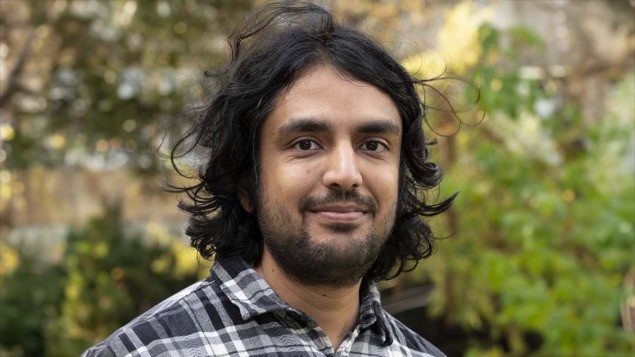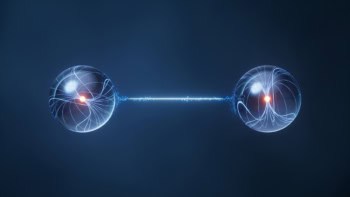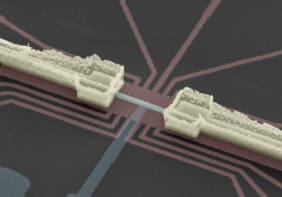Raghavendra Srinivas is a research fellow in the Department of Physics and Balliol College at the University of Oxford, UK, and also works part-time for Oxford Ionics. His research focuses on using trapped ions for quantum information processing, quantum sensing and fundamental quantum optics. Srinivas was awarded Optica’s 2024 Theodor W Hänsch Prize in Quantum Optics, which recognizes impactful early career researchers working on optics-enabled quantum technologies.

What skills do you use every day in your job?
One of my favourite parts of being an atomic physicist is the variety. I get to work with lasers, vacuums, experimental control software, simulations, data analysis and physics theory.
As I’m transitioning to a more senior position, the skills I use have changed. Rather than doing most of the lab-based work myself, I now have a more supervisory role on some projects. I go to the lab when I can but it’s certainly different. I’m also teaching a second-year quantum mechanics course, which requires its own skillset. I try to use my experience to impart more of an experimental flavour. The field is now in an exciting place where we can not only think about experiments with single quantum systems, but actually do them.
It’s important to have the right structures in place to deliver complex projects with many moving parts
I also work part-time at a trapped-ion quantum computing company, Oxford Ionics, which has grown from about 20 to over 60 people since I started in 2021. Being involved in a team with so many people has taught me a lot about the importance of project management. It’s important to have the right structures in place to deliver complex projects with many moving parts. In addition, most of my company colleagues are also not physicists; it’s important to be able to communicate with people across a range of disciplines.
What do you like best and least about your job?
Experimental physics is never boring, as experiments always find new and wonderful ways to break: 90–99% of the time something needs fixing, but when it works it’s just magical.
I’ve been incredibly lucky to work with a fantastic group of people wherever I’ve been. Experimental physics cannot be done alone and I feel very privileged to work with colleagues who are passionate about what they do and have a wide variety of skills.
I also love the opportunities for outreach activities that my position affords me. Since I started at Oxford, I have led work placements as part of In2scienceUK and more recently helped start a week-long summer school for school students with the National Quantum Computing Centre. In many ways, I think promoting the idea that a career in quantum physics is accessible to anyone as long as they are willing to work hard is the most impactful work I can do.
I do dislike that as you spend longer in a field, more and more non-lab-based tasks creep into your calendar. I also find it difficult to switch between different tasks but that’s the price to pay for being involved in multiple projects.
What do you know today, that you wish you knew when you were starting out in your career?
It’s a difficult feeling for me to shake off even now, but when I started my career, I used to feel afraid to ask questions when I didn’t know something. I think it’s easy to fall into the trap of thinking it’s your fault, or that others will think less of you. However, I believe it’s better to see these instances as opportunities to learn rather than being embarrassed.
Scientifically, I think it’s also really important to be able to take a step back from the weeds of technical work and have an idea of the big-picture physics you’re trying to solve. I would have encouraged my past self to spend more time thinking deeply about physics, even beyond the field I was in. Just a couple of hours a week adds up over time without really taking away from other work.
It’s easy to pour yourself completely into a project, but it’s important to do this sustainably and avoid burnout
One last thing I’d tell my past self is to think about boundaries and find a healthy work-life balance. It’s easy to pour yourself completely into a project, but it’s important to do this sustainably and avoid burnout. Other aspects of life are important too.



